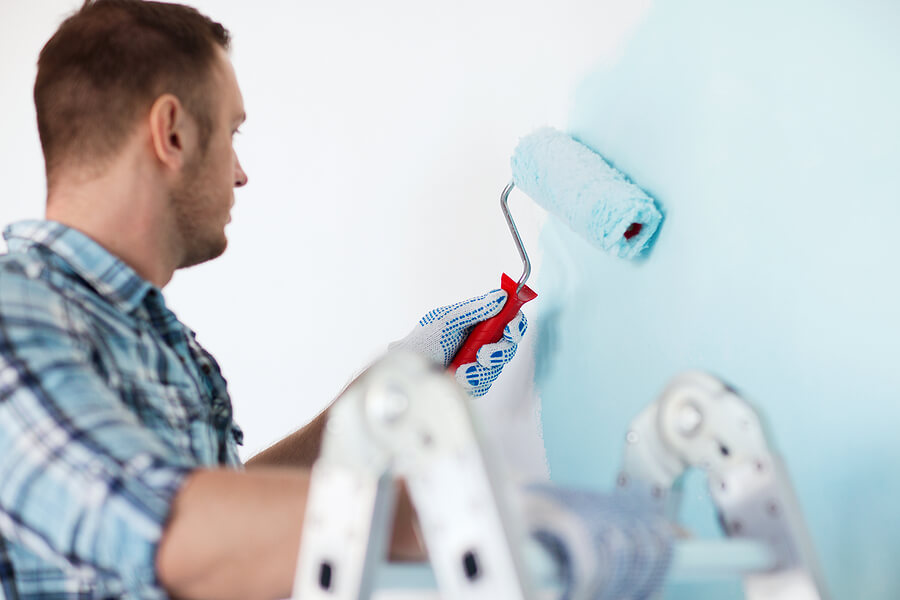Renovating your home can be an exciting adventure. You get to put your stamp on the place and design a space that matches your lifestyle and personality. The problem is, it can also be a daunting process – with different factors and variables that can change suddenly.
That’s why it’s important to have a well-thought-out plan in place before you begin your project. Preparing properly before starting your renovation can help make the process smoother and less stressful.

repair, building and home concept
To help you with your planning process, we’ve put together the below list of tips so you can ensure everything flows a little more seamlessly.
Start with a clear vision
The first thing you’re going to want to do is have a clear vision of what you want your space to look like once your renovations are complete. With a whole house renovation, you’ll want to make sure that each room connects and complements the other.
Creating a mood board is a great way to pull all your ideas together. You can use online sites to find images of design styles, furniture or other features that you love. You can even visit your local store and pick up paint or fabric samples. Then, use a room visualiser tool to make sure everything comes together how you envision it.
Make sure to try to keep your designs complementary. Consider larger design elements like your home flooring and wall colours to ensure flow and cohesion between each of the different rooms.
Create a budget and stick to it
There’s nothing worse than getting half way into a renovation and realizing that you’ve had a budget blow out. To avoid this, it’s important to set a realistic budget and factor in some extra funds for any unexpected costs that may pop up. Some things you may want to consider include:
- How many rooms are you planning on renovating?
- How large are the renovations? Are you just updating spaces or doing a complete remodel?
- What types of materials do you need?
- Will you need to upgrade things like your appliances?
- Are you recycling furniture? Or looking at new pieces?
The bulk of your budget will be for your selected materials and labour, but it’s also a good idea to put aside some money for any last minute changes or unexpected surprises that may pop up.
Choose quality materials that will last
It can be easy to get swept up in creating the look that you want, but it’s important that you craft your style with materials that are durable. After all, it doesn’t matter how good something looks if it’s going to be worn down by your everyday lifestyle.
Selecting durable floors such as hybrid flooring that are easy to maintain and keep clean. If you’ve got pets or children, paint that’s easy to wipe clean is an absolute must-have. You’ll also want to choose quality cabinetry materials so things stay looking great for years to come, and everything should be installed by a professional to ensure it’s solid and sound.
Maximize space and functionality
A key part of your design should be storage and functionality. A successful renovation isn’t just about making your home look a certain way, it’s also about designing a space that enhances your daily life.
To maximise the benefit you get from your renovations, you’ll want to think about how you use each room of the home, and what changes can be made to make things easier day to day. Does clutter easily build up on your surfaces? Do you need extra storage space for your hobbies or other activities?
Consider some of your own personal needs and make sure your storage works for you. Built-in storage solutions are a must-have for keeping everything organised and neat. You should also think about the layout of each room, ensuring that you have space to move and walk, without furniture pieces interrupting the overall flow.
Hire trusted professionals
Some projects can easily be done by yourself – especially if you’ve undertaken a renovation before or have specific skills. However, a cheap, badly done job will end up costing you far more in the long run than you would have paid if you’d spent a little more in the first place.
To avoid this, you’ll want to ensure that every contractor working on your renovation is fully licensed and qualified and that they have a good reputation. Never feel bad about asking to see these qualifications, and speak to references if you can. Reviews for their previous work can also give you an idea of what a contractor is like to work with, so you’ll be able to get a better idea of whether you’ll be able to build a good working relationship.
If you are planning on tackling it yourself, make sure that you understand the process and have all the right equipment you need to ensure a successful project.
Wrapping up your renovation journey
Ensuring that you’ve chosen the right team, planned everything properly and created a functional layout will help everything flow smoothly throughout your project. By paying particular attention to materials and craftsmanship, you’ll get the right balance between function and style, and sticking to your budget will mean you can enjoy the renovation process with far less stress. So, once everything is laid out nicely, all that’s left to do is look forward to your new space and the beauty you’re creating in your home.


